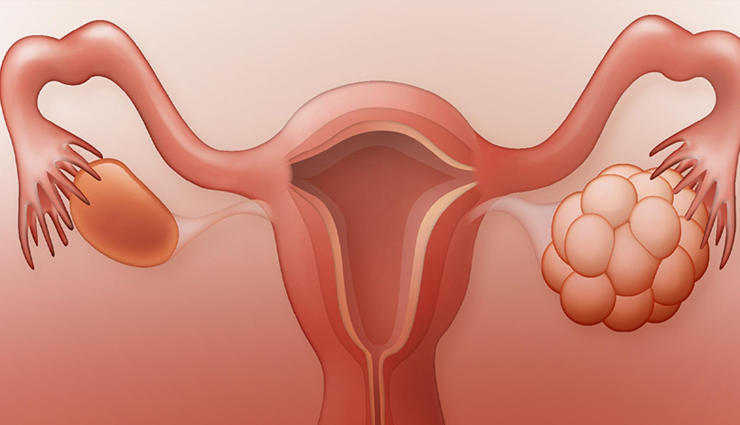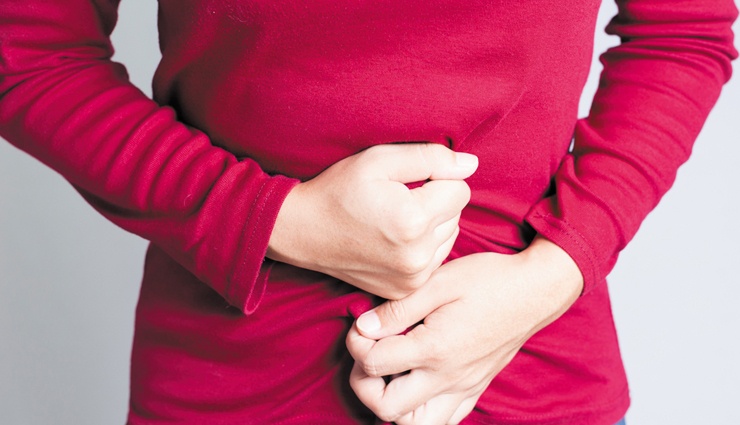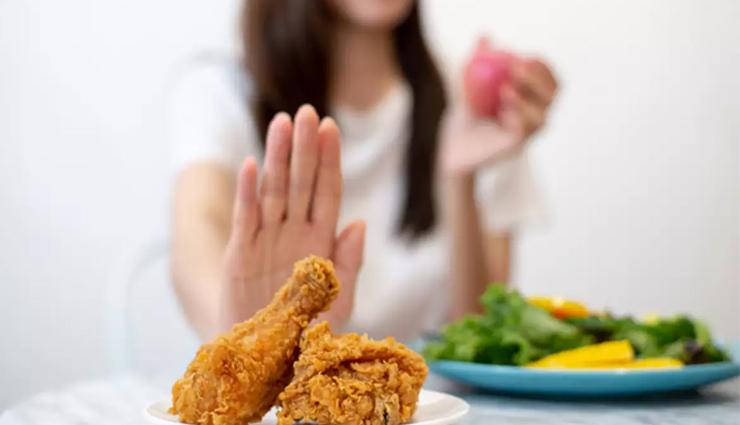- Home›
- Healthy Living›
- Major Reasons Why Did You Missed Your Periods
Major Reasons Why Did You Missed Your Periods
By: Priyanka Maheshwari Sat, 22 Aug 2020 8:43:42

Menstruation is the monthly discharge of blood from the inner lining of the uterus through the vagina due to the rise and fall of hormones in the body. It results in the thickening of the lining of the uterus and production of an egg required for pregnancy. It usually begins when a girl is 12–15 years old, although these days there are cases of early menstruation in children. Menstruation lasts for 2-7 days with a gap of 21–45 days (in young girls) and 21–35 days (in adults), from the first day of one period to the first day of the next. Almost 80% of women are known to have pre-menstruation symptoms such as acne, tiredness, bloating, painful abdominal cramps and mood swings. For some, the symptoms are severe, disrupting their daily life. However, a healthy diet, reduced salt content, exercise, etc. can help in controlling these symptoms. If not pregnancy, some major reasons for missing your periods or getting it irregularly are polycystic ovary syndrome (PCOS) and fibroids. Excessive body-weight loss or gain, obesity, stress, excessive exercise, thyroid, premature menopause, eating disorders such as anorexia or bulimia, and celiac, which is an autoimmune disorder, are also reasons to miss your periods.

Polycystic ovary syndrome
Some women suffer from PCOS, caused due to high male hormones in women. The hormonal imbalance caused by the excess androgen in the woman’s body leads to changes in the reproductive tract, affecting the uterus and the functioning of the ovaries. One of the symptoms of PCOS is scanty, delayed and irregular periods. PCOS is also associated with obesity, acne, hair growth on the face and body, small cysts in the ovaries, etc. It usually affects women in the age group of 18–44 years and can be detected through an ultrasound. Its main causes are lifestyle changes, including the consumption of junk food and processed food, change in diet, and intake of high-carb food. Chronic PCOS can lead to infertility at an early age. Statistics prove that 5–10 per cent of women cannot conceive because they suffer from PCOS. There are also other symptoms associated with insulin resistance, which are in high levels in women who suffer from PCOS.

Fibroids
Fibroids are small tumours that develop in the uterus and are usually harmless. The main cause attributed to fibroids is bad immunity. Ideally, during menstruation, the body eliminates blood cells. But with poor immunity, one’s body may not be able to eliminate blood cells naturally. They may lodge behind the uterus and turn into ‘bad cells’, which grow and bleed from within during the next cycle, thus causing blockages in the uterus. Doctors treat the condition by administering hormonal medicines, as fibroids can potentially destroy the uterus. One of the causes for fibroids is known to be the excessive use of emergency contraceptive pills. Although these pills are claimed to be safe to be taken multiple times, the medical fraternity strictly opposes its frequent use. Emergency pills are best taken only in situations where the woman was not ready to indulge in intercourse, say, rape. Regular contraceptive pills that have a lower dosage are effective against conception, and if followed properly can avoid accidental pregnancies.
Understanding and detecting fibroids
Fibroids can be detected through ultrasound, and if the condition doesn’t respond to hormonal medicines, it may need laparoscopy surgery, as in the case of advanced fibroids. If the woman is planning to get pregnant, the fibroids need to be removed before she conceives. Women who are nearing menopause and have completed their family set-up can even go for hysterectomy. A disciplined lifestyle, regular exercise eliminates possibilities of being affected by fibroids. Also, mothers need to educate their daughters about the menstrual cycle, and should make them understand the repercussions of reduced or nutrition-deficient food intake. However, parents need to also remember that there is no need to panic when young girls commence periods at the age of 12–15, and have it irregularly. They need to be patient and give it a year or two until the cycle settles and the periods get regular.

FOODS TO AVOID DURING PERIODS
Food containing caffeine: caffeinated soda, tea and coffee
Canned foods: candies, chips, pickle, snacks, salted popcorn, food made with lots of sauces
Dairy products: milk, buttermilk, yoghurt, cheese, etc
Red meat
FOODS TO INCLUDE DURING PERIODS
Foods rich in omega-3 fatty acid: salmon, tuna, walnuts, flax seeds
Foods rich in calcium and magnesium: broccoli and fortified cereals
Fresh fruits, foods rich in vitamin C: green leafy vegetables, courgette, tomatoes, oranges, lemon
Green tea or peppermint tea
TIPS TO AVOID MENSTRUATION CRAMPS
- Your food habits can solve many difficulties associated with menstrual cramps. Avoid the intake of very salty, sweet and spicy food.
- Take a vitamin B and calcium pill after food, as nutritional supplements help in relieving the pain.
- Keep a bottle of warm water above the stomach for some time.
- Try out simple exercises or yoga asanas in the days before you get your periods.
- Take pain relievers only after food; avoid eating any of those on an empty stomach.





